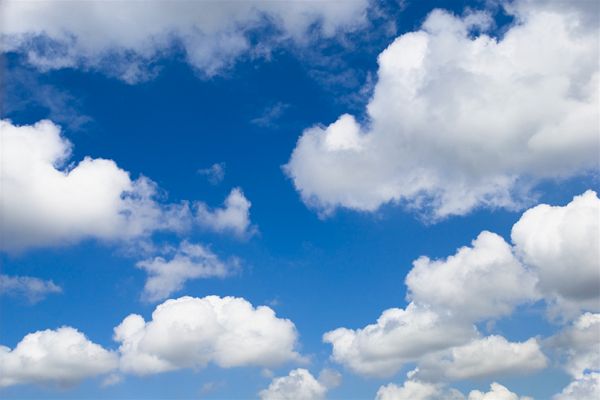 Mayor Bill de Blasio, in partnership with the NYC Environmental Justice Advisory Board, today announced the launch of the community engagement process for the Environmental Justice For All report.
Mayor Bill de Blasio, in partnership with the NYC Environmental Justice Advisory Board, today announced the launch of the community engagement process for the Environmental Justice For All report.
It’s an unprecedented comprehensive study of environmental justice issues that will lead to the development of a citywide Environmental Justice Plan. The engagement effort will prioritize the low-income communities and communities of color that have borne the brunt of environmental degradation, the climate crisis, and America’s fossil fuel economy.
“A recovery for all of us means a healthier and more sustainable city,” said Mayor Bill de Blasio. “Change starts at the grassroots, and we will hear from communities most impacted by climate change, pollution and more to end the era of environmental racism and create a more livable future, together.”
“This pandemic has exposed many long-standing injustices in our city that have also resulted in low-income residents and communities of color bearing a disproportionate burden of pollution and the effects of climate change for far too long,” said Daniel Zarrilli, New York City’s Chief Climate Policy Advisor. “As we work to ensure a fair recovery for all New Yorkers, we will accelerate our economic recovery by creating good-paying jobs in clean energy and resilient infrastructure while overcoming environmental injustices. That starts by empowering communities with information and hearing directly from frontline voices. Congratulations to the members of the Environmental Justice Advisory Board and Adriana Espinoza for leading this necessary work. This is how we end the age of fossil fuels and secure climate justice for all New Yorkers.”
“As chair of the NYC Environmental Justice Advisory Board, I am eager to hear from diverse NYC community residents who have been living in neighborhoods impacted by polluting facilities,” said Harlem‘s Peggy Shepard,
“As chair of the NYC Environmental Justice Advisory Board, I am eager to hear from diverse NYC community residents who have been living in neighborhoods impacted by polluting facilities,” said Harlem’s Peggy Shepard, Executive Director, WE ACT for Environmental Justice and NYC Environmental Justice Advisory Board Chair. “As the city assesses community commentary, recommendations and data, we look forward to an EJ plan that will reduce the legacy of pollution and strategically invest in community safety and sustainability.”
“Delivering on environmental justice is not something a government can do on its own, it requires just partnerships with frontline communities, letting their voices and their priorities shape the agenda,” said Adriana Espinoza, New York City’s Senior Advisor for Environmental Justice. “This landmark process aims to do just that. The announcement today an important first step towards building environmental justice into the fabric of the City’s decision-making, and I look forward to working with the Environmental Justice Advisory Board to make it happen.”
The report is led by the Mayor’s Office of Climate Policy and Programs and an Interagency Working Group of 19 City agencies, and will go on to inform future policies, programs and procedures to ensure future administrations must also work to close environmental and health disparities, and at the same time, distribute the benefits of the City’s Green New Deal equitably to frontline communities.
The Environmental Justice Advisory Board, in partnership with the Mayor’s Office, is also launching a citywide public engagement period to ensure the issues covered in the Environmental Justice for All Report are rooted in the real priorities of frontline communities.
The engagement process will consist of virtual town halls, the first of which is scheduled for February 25th from 6:00-7:30 pm, as well as a 90-day public comment period. New Yorkers can learn more about this process and contribute their feedback by visiting www.nyc.gov/EJStudy.
As part of this process, the Interagency Working Group has published the city’s first-ever interactive map identifying environmental justice areas.
This map will facilitate environmental justice communities’ participation in the study, and will become the standard to be used by the entire city in evaluating the impact of their policies, programs, and procedures on EJ communities.
The map can be viewed here.
“One of my proudest moments in the Council came in 2017 when Council Member Barron and I worked together to pass comprehensive environmental justice legislation,” said Council Member Costa Constantinides. “Now we are beginning to see the fruits of that labor. This study will ensure that equity for all New Yorkers is a cornerstone of our environmental policy. I look forward to working with the administration to ensure that all of our communities can partake in the just transition we desperately need.”
“Environmental justice is a major component of health equity, and the Health Department is committed to advancing both as part of this citywide effort,” said Health Commissioner Dr. Dave A. Chokshi. “As we work to prevent inequitable health outcomes across our city, ranging from COVID-19 outcomes to the health impacts of poor air quality, we must address the structural racism that has impacted neighborhoods.”
“The Environmental Justice for All Report will provide much-needed attention to environmental justice issues and help address long-standing environmental and health hazards,” said NYCHA Chair & CEO Gregory Russ. “We are hopeful that the recommendations that come out of this process will lead to improved health outcomes, a stronger quality of life, and more opportunities for residents to contribute to the health of their communities.”
“Creating an inclusive future that serves all New Yorkers means prioritizing the voices of the residents most impacted by the climate crisis, said Kate Gouin, Acting Director, NYC Mayor’s Office of Sustainability. “The community engagement work now underway is critical to protecting the health of our families, our planet, and our economy.”
“At the Department of Sanitation, we work to make the city safe and clean for all New Yorkers – and that means joining with our partners in government to confront a legacy of inequality. The Sanitation Department is proud to have worked with advocates and the City Council to implement Waste Equity and Commercial Waste Zones and make our waste management system fairer and more equitable. The development of this plan is an important step, and I thank the Administration for the opportunity to be a part of it,” said Edward Grayson, Commissioner of the Department of Sanitation.
“One of our missions at NYC Parks is to design, facilitate, and create equitable greenspaces for all — a mission intrinsically tied to environmental justice,” said NYC Parks Commissioner Mitchell J. Silver, FAICP. “We are proud to support the initial stage of the Mayor’s groundbreaking Environmental Justice For All report, which by focusing efforts to engage low-income communities and communities of color to better understand their needs and priorities, will work to redouble our efforts to ensure environmental justice for all New Yorkers into the future.”
“This past year has laid bare the deep inequities our historically underserved communities have faced for decades — not just in healthcare, food insecurity and economic opportunity, but environmental injustice as well. If we are serious about improving public health, environmental equity must be at the forefront of that fight,” said Queens Borough President Donovan Richards. “Queens is thankful for the NYC Environmental Justice Advisory Board’s work, and we encourage all our residents to be a part of the change our communities not only need, but deserve.”
“It is an honor to participate in building a more just, greener New York City that prioritizes the needs and concerns of frontline communities. This long-needed environmental justice analysis will set the agenda for the City’s environmental justice plans going forward,” said Rebecca Bratspies, Professor of Law, CUNY School of Law and NYC Environmental Justice Advisory Board Member.
“This is an important step in the EJ Study process because it creates a direct pathway for community voices to be heard. The Advisory Board is eager to learn from the lived experiences of as many residents of EJ communities as possible,” said Shoshanah Brown, Founder and CEO, AIRnyc and NYC Environmental Justice Advisory Board Member.
“Human beings are social animals whose very successful existence is built upon the skill of manipulation of any environment. This is why the environment and environmental justice are the most insidious existential threats to human existence. They threaten everything we will accomplish together in the world we love. As a resident of NYCHA I am proud to contribute to the work and the precedents established by the Mayor’s NYC Environmental Justice Advisory Board, as it addresses the work of creating a path forward towards a safer and healthier NYC,” said Tina Johnson, Grant Houses NYCHA tenant, Environmental Justice Advocate, and NYC Environmental Justice Advisory Board Member.
“For too long, it has felt like environmental laws do not apply to us, not in a way that was uplifting and beneficial. As there was no requirement and no commitment for change that would improve our Environmental Justice Communities. This is the first time that New York City government is working to stamp out systemic racism within its agencies. On behalf of the North Shore Waterfront Conservancy of Staten Island, Inc. We urge our North Shore Environmental Justice & Waterfront Communities to participate in giving direction in building the kind of environment that you can be proud to live in and that you want your children and grandchildren to be surrounded by,” said Beryl Thurman, Founder/Executive Director, North Shore Waterfront Conservancy of Staten Island and NYC Environmental Justice Advisory Board Member.
Become a Harlem Insider!
By submitting this form, you are consenting to receive marketing emails from: . You can revoke your consent to receive emails at any time by using the SafeUnsubscribe® link, found at the bottom of every email. Emails are serviced by Constant Contact








